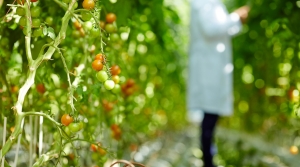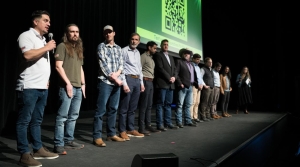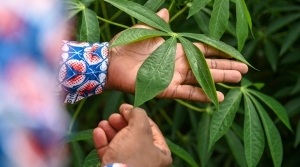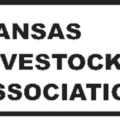WASHINGTON and WAYZATA, Minn. — The Foundation for Food & Agriculture Research (FFAR) and OCP North America (OCPNA), a subsidiary of the global plant-nutrition company OCP Group, today announced the 2023 winners of the FFAR-OCP Disruptive Fertilizer Technology Fellowship (FFAR-OCP Fellowship). In addition, on December 11, 2024, FFAR and OCPNA will begin accepting applications for 2024 Fellowships and will host a webinar featuring the 2022 cohort.
While fertilizers are essential for healthy, high-yielding crops, excess fertilizer can result in harmful environmental consequences. Farmers need improved fertilizer technologies and guidance to improve soil and plant health, crop productivity and environmental resilience.
The FFAR-OCP Fellowship aims to provide early-career scientists with opportunities to advance research on precision fertilizer application methods and nutrient recommendation methods, as well as guidance on land applications of animal waste to customize and enhance fertilizer efficiency. Ultimately, the FFAR-OCP Fellowship intends to deliver new innovations in fertilizer products that are safe, effective, commercially scalable and easily understood by farmers. The FFAR-OCP Fellowship is a two-year program supported by $250,000 from both FFAR and OCPNA for a total program fund of $500,000.
The FFAR-OCP Fellowship is accepting applications for the 2024 cohort beginning at noon EST December 11, 2024, until 5 p.m. EST on January 29, 2025. The request for applications includes additional information about research priorities and eligibility requirements. Each awardee may receive up to $75,000 in funding, and applicants are not required to secure additional funds. For more information visit the FFAR-OCP Fellowship Open Opportunity page.
The 2023 FFAR-OCP Fellows are:
- Dr. Fabian Beeckman of VIB-UGent Center for Plant Systems Biology received $75,000 through the Fellowship, which was matched by Ghent University, to develop naturally occurring nitrification inhibitors. Nitrification, a microbial soil process, contributes to nitrogen pollution and nitrous oxide emissions, a potent greenhouse gas. Using an innovative miniaturized soil-based assay, thousands of natural compounds will be screened for inhibition potential on a diverse microbial soil community, maximizing inhibitor efficiency. Unlike costly synthetic inhibitors, biological alternatives can simplify regulatory approval and align with consumer demands for chemical-free, organic-approved farming, offering a sustainable way to reduce nitrogen fertilization’s environmental impact by enhancing fertilizer efficiency.
- Dr. Benjamin Wang of Stanford University received $75,000 through the Fellowship, which was matched by Stanford University, to develop an environmentally sustainable gas-based process for manufacturing agricultural chemicals, including specialty fertilizers. When applied to plants, this process improves nitrogen use efficiency by stimulating plants’ ability to take up nutrients and water, enabling growers to combat drought conditions and increase crop yields with less fertilizer use.
FFAR and OCPNA will host a webinar December 11 at noon EST to introduce Dr. Beeckman and Dr. Wang. The webinar will also include a panel featuring the three inaugural 2022 FFAR-OCP Fellows discussing their research and emerging breakthroughs in innovative fertilizer technologies. Registration for the webinar is required.
The following 2022 FFAR-OCP Fellows are participating in the webinar:
- Dr. Maarten Everaert, KU Leuven
- Dr. Kanwardeep S. Rawale, Biotech Naturale, Inc.
- Dr. Utsav Shashvatt, University of California, Berkeley
Foundation for Food & Agriculture Research
The Foundation for Food & Agriculture Research (FFAR) builds public-private partnerships to fund bold research addressing big food and agriculture challenges. FFAR was established in the 2014 Farm Bill to increase public agriculture research investments, fill knowledge gaps and complement the U.S. Department of Agriculture’s research agenda. FFAR’s model matches federal funding from Congress with private funding, delivering a powerful return on taxpayer investment. Through collaboration and partnerships, FFAR advances actionable science benefiting farmers, consumers and the environment.
–Foundation for Food & Agriculture Research











